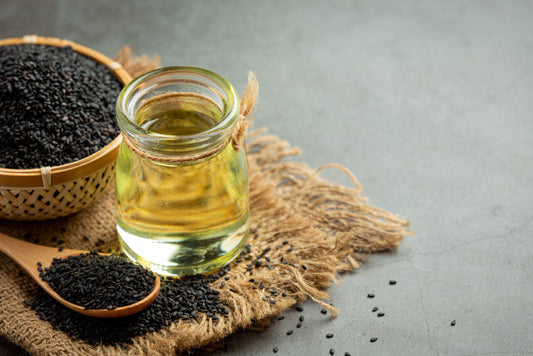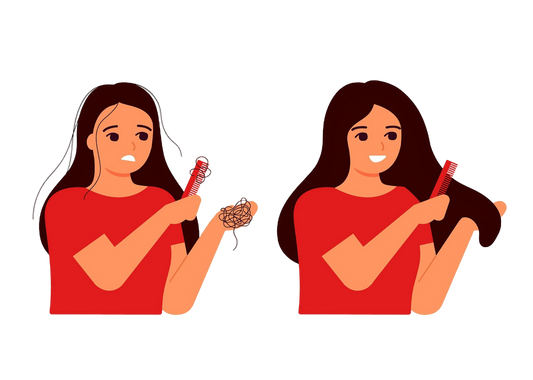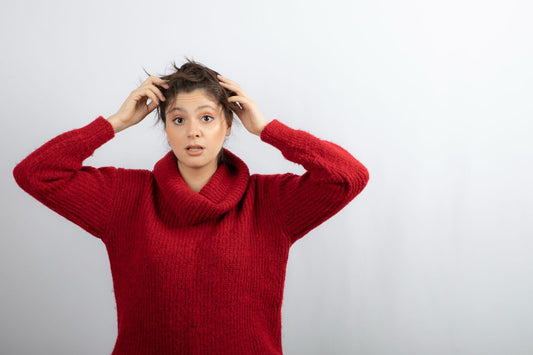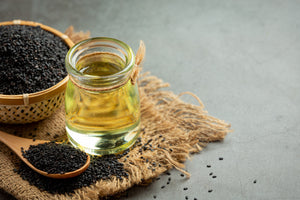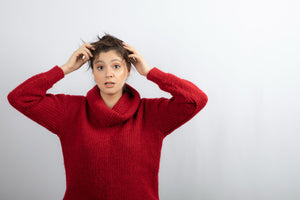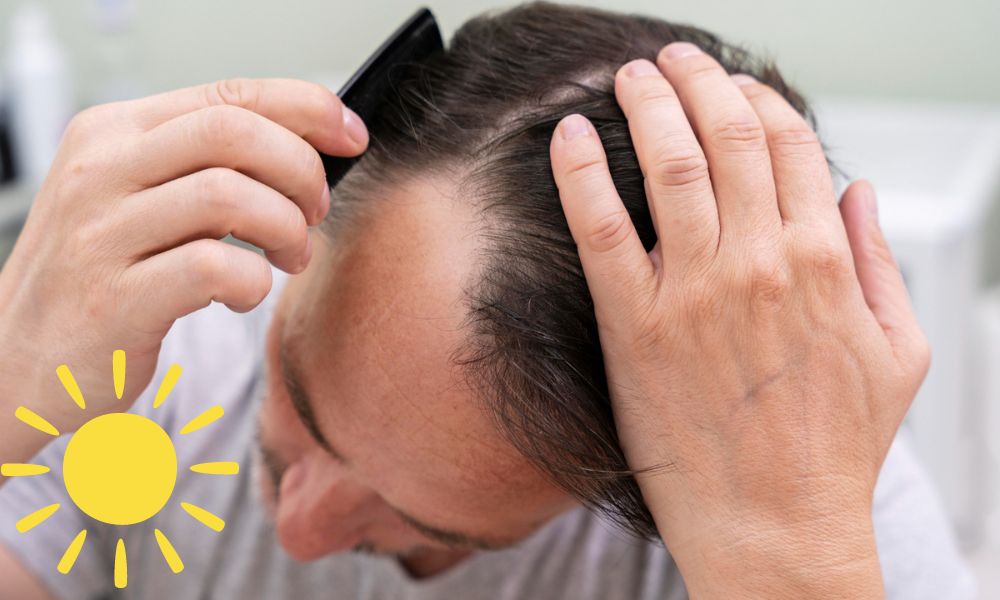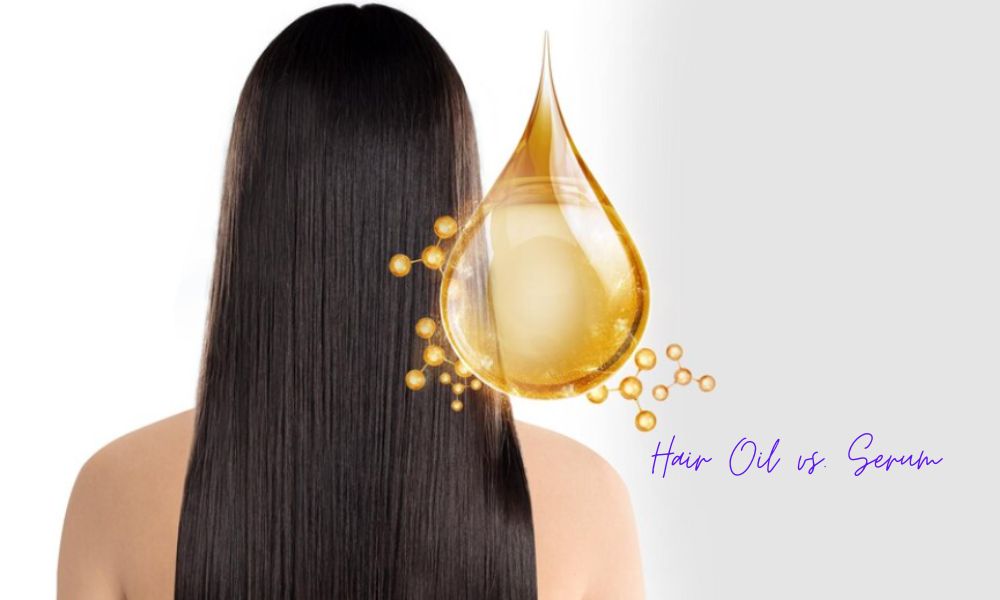Articles
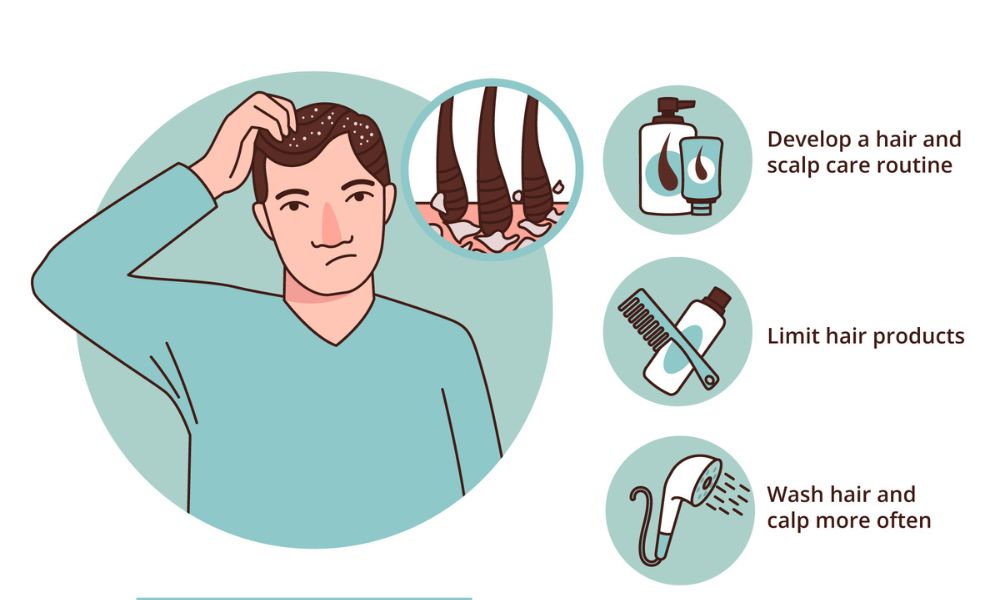
Skin Care
Dandruff vs. Dry Scalp: What's the Difference?
Ever run your fingers through your hair, only to find unsightly flakes showering your shoulders? This frustrating experience, commonly referred to as dandruff or dry scalp, can leave you feeling self-conscious and searching for answers.
While both dandruff and dry scalp can cause flaking and itching, understanding the root cause behind those flakes is the key to achieving a healthy, flake-free scalp.
Dandruff vs. Dry Scalp: What's the Difference?
The key difference between dandruff and dry scalp lies in the root cause of the flaking.
Dandruff:
Dandruff is caused by an overproduction of oil on the scalp combined with the growth of a fungus called Malassezia.
This fungus feeds on the scalp oils, leading to faster skin cell turnover. The dead skin cells clump together, forming the visible flakes we associate with dandruff.
Dry Scalp :
Dry scalp, on the other hand, is caused by a lack of moisture in the scalp.
This can be due to various factors like dry weather, harsh shampoos, or underlying skin conditions like eczema or psoriasis.
Dandruff vs. Dry Scalp: A Comparison Table
| Feature | Dandruff | Dry Scalp |
| Cause | Excess oil & Malassezia yeast | Lack of moisture |
| Flake Appearance | Larger, oily, yellowish flakes | Smaller, white flakes |
| Hair | Can occur with oily or dry hair | Often accompanied by dry hair |
| Scalp | May be red or irritated | May have visible cracks |
| Itchiness | Can be itchy | Can be itchy |
Dandruff Flakes vs. Dry Scalp Flakes: A Closer Look
The appearance of the flakes can be a telltale sign:
Dandruff flakes: Dandruff flakes tend to be larger, oilier, and may have a yellowish tinge. They often clump together and are more noticeable, especially on dark hair.
Dry scalp flakes: Dry scalp flakes are typically smaller, white, and powdery. They tend to fall off the scalp more easily and are less noticeable on hair.
Druff or Dry Scalp? How to Tell the Difference
If you're unsure whether you have dandruff or dry scalp, consider these additional factors:
Hair type: Dandruff can affect people with any hair type, while dry scalp is more commonly associated with dry hair.
Scalp condition: Dandruff may cause redness and irritation, while dry scalp might lead to visible cracks in the scalp.
Still unsure? Consulting a dermatologist can help you get a proper diagnosis and recommend the best course of treatment.

 Doctor Consultation
Doctor Consultation


